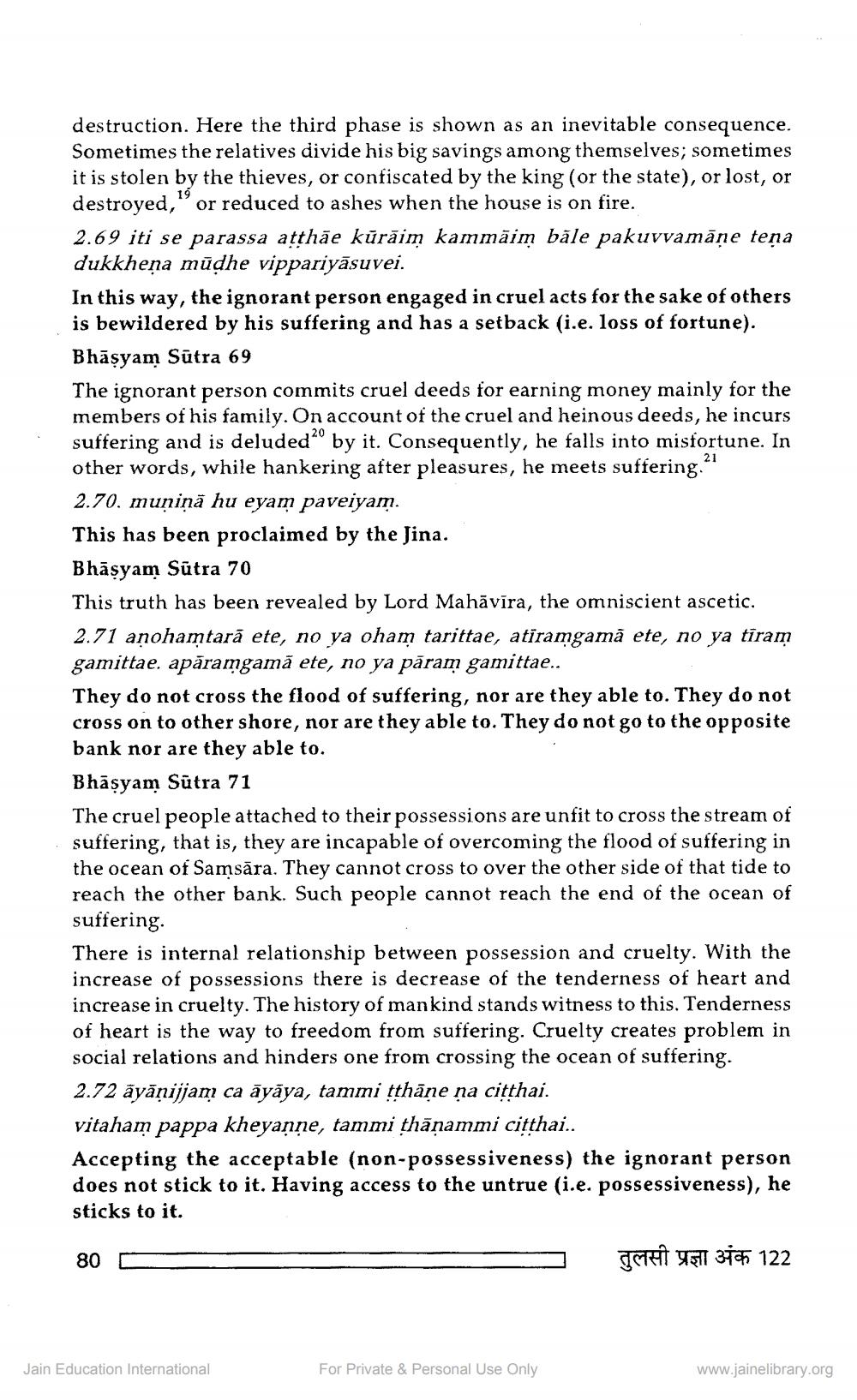________________
destruction. Here the third phase is shown as an inevitable consequence. Sometimes the relatives divide his big savings among themselves; sometimes it is stolen by the thieves, or confiscated by the king (or the state), or lost, or destroyed," or reduced to ashes when the house is on fire. 2.69 iti se parassa atthāe kūrāim kammāim băle pakuvvamāṇe teņa dukkheņa mūdhe vippariyāsuvei. In this way, the ignorant person engaged in cruel acts for the sake of others is bewildered by his suffering and has a setback (i.e. loss of fortune). Bhāsyam Sutra 69 The ignorant person commits cruel deeds for earning money main members of his family. On account of the cruel and heinous deeds, he incurs suffering and is deluded by it. Consequently, he falls into misfortune. In other words, while hankering after pleasures, he meets suffering." 2.70, muniņā hu eyam paveiyam. This has been proclaimed by the Jina. Bhāsyam Sūtra 70 This truth has been revealed by Lord Mahāvīra, the omniscient ascetic. 2.71 aņohamtarā ete, no ya oham tarittae, atiramgamă ete, no ya tiram gamittae, apăramgamă ete, no ya pāram gamittae.. They do not cross the flood of suffering, nor are they able to. They do not cross on to other shore, nor are they able to. They do not go to the opposite bank nor are they able to. Bhajyam Sutra 71 The cruel people attached to their possessions are unfit to cross the stream of suffering, that is, they are incapable of overcoming the flood of suffering in the ocean of Samsāra. They cannot cross to over the other side of that tide to reach the other bank. Such people cannot reach the end of the ocean of suffering. There is internal relationship between possession and cruelty. With the increase of possessions there is decrease of the tenderness of heart and increase in cruelty. The history of mankind stands witness to this. Tenderness of heart is the way to freedom from suffering. Cruelty creates problem in social relations and hinders one from crossing the ocean of suffering. 2.72 āyānijjam ca āyāya, tammi tthāne na citthai. vitaham pappa kheyaņņe, tammi thānammi citthai.. Accepting the acceptable (non-possessiveness) the ignorant person does not stick to it. Having access to the untrue (i.e. possessiveness), he sticks to it.
80 C
IETET UR 31122
Jain Education International
For Private & Personal Use Only
www.jainelibrary.org




